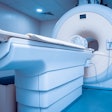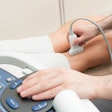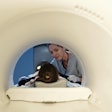
In the current imaging services climate, facilities are actively seeking ways to streamline their business model and provide the best possible service. And fortunately or not, consolidation is part of this trend.
In July, a new player entered the imaging services field when the Gores Group of Los Angeles, a private equity firm, bought the diagnostic division of HealthSouth of Birmingham, AL. The new company, Diagnostic Health, is now one of the larger imaging center chains and may prove to be a consolidating force in the industry.
 |
| Diagnostic Health CEO Diane Munson. |
Diagnostic Health's new CEO is Diane Munson, formerly president of HealthSouth's outpatient rehabilitation division. Munson has also served at Baxter International, Caremark International, Beverly Enterprises, and FluidSense. AuntMinnie.com spoke to Munson about the new company's formation and plans going forward.
AuntMinnie.com: How would you describe the state of the imaging center industry?
The Deficit Reduction Act (DRA) of 2005 has clearly impacted the industry, and if you're in the service business in healthcare today, reimbursement and utilization are big issues. The Centers for Medicaid and Medicare Services (CMS) are closely tracking imaging utilization as the U.S. population gets older. In the next decade or so, the need for imaging services is bound to increase, and one of the key issues we'll be actively addressing here at Diagnostic Health is the quality of our service. Quality is the competitive edge for imaging services now.
Why was the new company formed?
It's a challenging industry we're in now, and it's exciting in terms of growth potential. We see lots of opportunities to grow our existing markets, as well as to seek acquisitions.
What is the company's initial focus?
We've developed some strategic initiatives, which include focusing on quality, developing leadership and employee education, managing our existing portfolio, devising operating performance metrics, and addressing the issues of government regulations and legislative concerns that affect our industry.
How does Diagnostic Health differentiate itself from the competition?
We're a customer service business, and we pride ourselves on our good relationships with our M.D.s, fast turnaround, and quality control on our imaging scans, and in making sure patients have a positive experience when they're with us -- especially since people are often anxious about having to come in for a test.
Are there acquisitions in the pipeline now?
During the process of divesting from HealthSouth and being acquired by the Gores Group, we received quite a few unsolicited phone calls from parties interested in selling. We've brought on a vice president of development to help us work with local metropolitan statistical areas (MSAs) to determine where to expand.
On what markets does Diagnostic Health plan to focus?
We plan to focus on MSAs; in other words, larger markets rather than rural ones. We've got good physician leadership and a good payor mix in our existing portfolio, so we'll start by looking at the markets we're in currently.
Will Diagnostic Health be expanding its staff team or streamlining?
Definitely expanding. Since we're a fully standalone company now, we've hired a senior management team to support our field team and put in human resources folks. We're a people business -- in the past 60 days, I've visited over half of our portfolio, and I couldn't be more thrilled with the strength and professionalism of our staff.
How will Diagnostic Health determine how to maximize its current facilities' function?
We've formed an investment committee with a vice president of operations, a vice president of finance, and a director of administration to look at our current mix of services and perform rationalization assessments of our existing centers' technology. That committee will help decide what kind of technology upgrades make sense and where adding technology makes sense, and will work with individual facility managers to develop a priority list. Our partnership with the Gores Group will allow us to invest in new technology when appropriate, as well as make acquisitions.
Is consolidation good news or bad for the imaging center industry?
Imaging facilities have proliferated in the past number of years based on a perceived need for their services. The current trend toward consolidation will help all of us practice economies of scale and manage the payor mix more directly.
By Kate Madden Yee
AuntMinnie.com staff writer
August 21, 2007
Related Reading
Gores Group finalizes HealthSouth imaging buy, August 1, 2007
HealthSouth to sell imaging center division, April 20, 2007
HealthSouth mulls sale of diagnostics unit, May 24, 2005
HealthSouth, Oracle digital hospital hits snag, May 31, 2002
Siemens and HealthSouth partner on all-digital hospital, February 1, 2002
Copyright © 2007 AuntMinnie.com



















